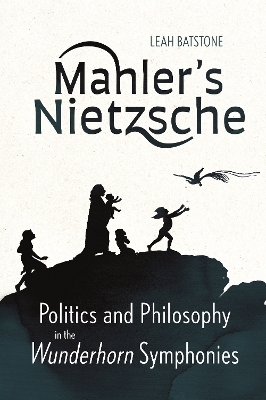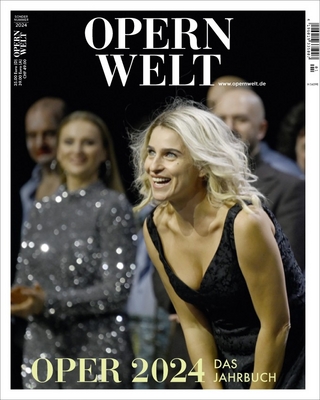
Mahler's Nietzsche
Politics and Philosophy in the Wunderhorn Symphonies
Seiten
2023
Boydell & Brewer (Verlag)
978-1-83765-001-9 (ISBN)
Boydell & Brewer (Verlag)
978-1-83765-001-9 (ISBN)
Examines how Nietzschean ideas influenced the composition of Mahler's first four, so-called Wunderhorn, symphonies.
Gustav Mahler and Friedrich Nietzsche both exercised a tremendous influence over the twentieth century. All the more fascinating, then, is Mahler's intellectual engagement with the writings of Nietzsche.
Given the limited and frequently cryptic nature of the composer's own comments on Nietzsche, Mahler's specific understanding of the elusive thinker is achieved through the examination of Nietzsche's reception amongst the people who introduced composer to philosopher: members of the Pernerstorfer Circle at the University of Vienna.
Mahler's Nietzsche draws on a variety of primary sources to answer two key questions. The first is hermeneutic: what do Mahler's allusions to Nietzsche mean? The second is creative: how can Mahler's own characterization of Nietzsche as an "epoch-making influence" be identified in his compositional techniques? By answering these two questions, the book paints a more accurate picture of the intersections of the arts, philosophy and politics in fin-de-siècle Vienna. Mahler's Nietzsche will be required reading for scholars and students of nineteenth and early twentieth century German music and philosophy.
Gustav Mahler and Friedrich Nietzsche both exercised a tremendous influence over the twentieth century. All the more fascinating, then, is Mahler's intellectual engagement with the writings of Nietzsche.
Given the limited and frequently cryptic nature of the composer's own comments on Nietzsche, Mahler's specific understanding of the elusive thinker is achieved through the examination of Nietzsche's reception amongst the people who introduced composer to philosopher: members of the Pernerstorfer Circle at the University of Vienna.
Mahler's Nietzsche draws on a variety of primary sources to answer two key questions. The first is hermeneutic: what do Mahler's allusions to Nietzsche mean? The second is creative: how can Mahler's own characterization of Nietzsche as an "epoch-making influence" be identified in his compositional techniques? By answering these two questions, the book paints a more accurate picture of the intersections of the arts, philosophy and politics in fin-de-siècle Vienna. Mahler's Nietzsche will be required reading for scholars and students of nineteenth and early twentieth century German music and philosophy.
LEAH BATSTONE is a musicologist working at the intersections of art music, politics, and philosophy in Central and Eastern Europe. She received her PhD in musicology from McGill University and holds a Master's degree in musicology from the University of Oxford
Introduction: An Epoch-Making Influence
1 The Case of Wagner
2 The Crown of Laughter
3 The Gay Science
4 The Übermensch
5 Ecce Homo
Epilogue
Appendix I: Original Symphony Programs
Appendix II: Song Texts
Bibliography
Index
| Erscheinungsdatum | 27.12.2022 |
|---|---|
| Zusatzinfo | 3 b/w, 43 line illus. |
| Verlagsort | Woodbridge |
| Sprache | englisch |
| Maße | 156 x 234 mm |
| Gewicht | 395 g |
| Themenwelt | Kunst / Musik / Theater ► Musik ► Klassik / Oper / Musical |
| Geisteswissenschaften ► Philosophie ► Geschichte der Philosophie | |
| Geisteswissenschaften ► Philosophie ► Philosophie der Neuzeit | |
| ISBN-10 | 1-83765-001-2 / 1837650012 |
| ISBN-13 | 978-1-83765-001-9 / 9781837650019 |
| Zustand | Neuware |
| Informationen gemäß Produktsicherheitsverordnung (GPSR) | |
| Haben Sie eine Frage zum Produkt? |
Mehr entdecken
aus dem Bereich
aus dem Bereich
Buch | Softcover (2024)
Der Theaterverlag - Friedrich Berlin
CHF 48,95
Mozart und der Abschied von der Aufklärung
Buch | Hardcover (2024)
C.H.Beck (Verlag)
CHF 41,90


